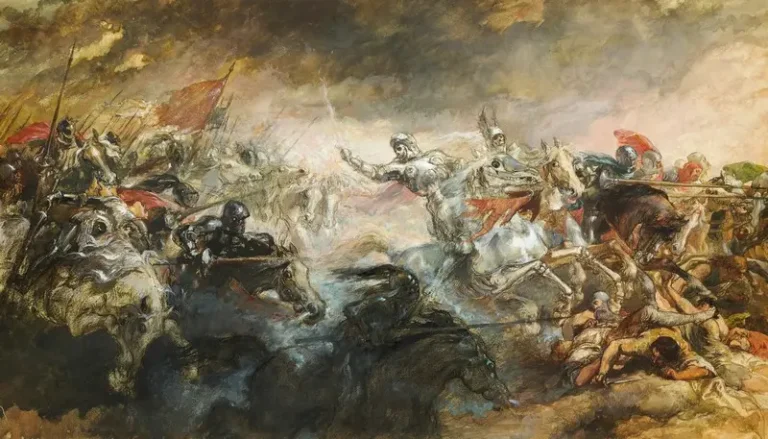Table of Contents
- Understanding Marx’s Framework
- The Art-Commodity and Class Relations
- Art as Ideological Apparatus
- The Role of Realism
- The Aesthetic Debate
- Cultural Hegemony
- Marxist Critique of Popular Culture
- Art and Revolution
- Key Takeaways
- Conclusion
The Marxist perspective on art provides a compelling framework for understanding how economic structures and class relations shape the creation, distribution, and consumption of art. At the core of Marxist theory is the proposition that economic factors — particularly the ownership of the means of production — exert a profound influence on cultural and artistic expressions. This notion of a fundamental link between base (the economic and social structures) and superstructure (the cultural, political, and ideological components of a society) forms the conceptual bedrock of the Marxist view. In this article, we will explore the Marxist approach to art, delving into the relationship between art and class, the commodification of cultural products, and the ways in which art can serve both as a vehicle for social change and a tool of ideological reinforcement.
Understanding Marx’s Framework
Karl Marx argued that the mode of production of a society shapes its political, legal, and cultural systems. The concept of historical materialism underlies this view: material conditions, such as production and social organization, inform how people think, act, and create. From this perspective, art is not autonomous but embedded within the broader dynamics of economic structures. Artistic practices cannot be understood in isolation from the organization of labor, the extraction of surplus value, or the ownership of the means of production. Instead, art is inevitably a product of its socio-economic context.
Historical Materialism
Historical materialism posits that it is the material conditions, rather than abstract ideas, that primarily drive societal change. In the process of creating art, artists draw upon their lived experiences in a given society, which are in turn shaped by class position and economic realities.
If we adopt the lens of historical materialism, we see:
- Artistic forms evolve in tandem with shifts in the material base
- Cultural products express the dominant ideologies of the ruling class
- Major upheavals or transitions (like revolutions) correspond to changes in the way art is produced, consumed, and interpreted
The Art-Commodity and Class Relations
Marxist theorists emphasize the role of art as a commodity under capitalism. Because art becomes part of market transactions, it is seen as an object that can be bought, sold, and traded. This commodification process influences its content, form, and perceived social value. When art is integrated into the marketplace, it both reflects and amplifies class divisions. Wealthy patrons or institutions have the power to sponsor and select which art forms gain visibility, thus perpetuating existing power dynamics.
Patronage and the Elite
Historically, patronage by the aristocracy or other elites has shaped the nature of artistic production. Under capitalism, galleries, publishers, and major cultural institutions often replicate this dynamic by determining which artists and works receive support. This mechanism ensures that certain narratives and aesthetics are validated, while others remain on the periphery.
Artists from economically marginalized backgrounds may face significant barriers to entry, lacking the resources or connections necessary to achieve recognition. As a result, art risks becoming a closed circle, where privileged groups reinforce their tastes and ideologies, positioning them as universal or transcendent truths.
Alienation and the Artist
Alienation, a key concept in Marxist thought, refers to the estrangement of workers from the products of their labor, from their own potential, and from one another under capitalism. Artists, though often perceived as autonomous creators, can also experience alienation.
They must often cater to market demands to make a living, potentially compromising their creative impulses. Moreover, popular success might be intertwined with producing work that appeals to a broad consumer base, causing artists to align with commodified tastes and trends. Through this lens, artistic freedom can be limited by the economic pressures inherent in the capitalist system.
Art as Ideological Apparatus
Louis Althusser’s concept of the ideological state apparatus underscores the notion that cultural institutions, including those for art, serve as powerful sites for reproducing dominant ideology. From a Marxist viewpoint, art can function both as a form of resistance and as an instrument for perpetuating existing power structures.
Reinforcing Dominant Ideology
Art that reinforces the values of the ruling class is likely to receive greater endorsement, being more closely aligned with mainstream tastes. For instance, works that glorify individual success narratives, nationalist sentiments, or commodified aesthetic preferences may flourish in the capitalist marketplace. These works subtly reinforce consumer culture and capitalist ideologies, validating the notion that social hierarchies are natural and just.
Art as Resistance
At the same time, Marxist scholars highlight art’s potential to challenge entrenched economic and social structures. Revolutionary art, such as the agitprop theater of early Soviet Russia or politically charged murals in various parts of the world, seeks to awaken class consciousness and inspire collective action. Such works can expose the inequalities of capitalism, illustrate the contradictions in everyday life, and portray compelling visions for social change. Although sometimes marginalized, radical art can galvanize political movements and offer a counter-discourse to mainstream ideology.
The Role of Realism
Marxists historically placed a premium on realism, considering it the artistic mode most capable of depicting social conditions accurately and unveiling systemic contradictions. Georg Lukács, one of the major Marxist literary critics, argued that realism forces the viewer or reader to grapple with the lived experiences of the working class. Rather than indulging in abstraction or escapist fantasy, realism spotlights the social relations, material hardship, and class struggles that define everyday life for the majority.
Lukács maintained that by foregrounding social realities, realist art can nurture a critical awareness that paves the way for political action. This preference for realism often emerged from the belief that art should serve the interests of the proletariat, illuminating the structural forces that keep them oppressed.
The Aesthetic Debate
Get the full article AD FREE. Join now for full access to all premium articles.
View Plans & Subscribe Already a member? Log in.





